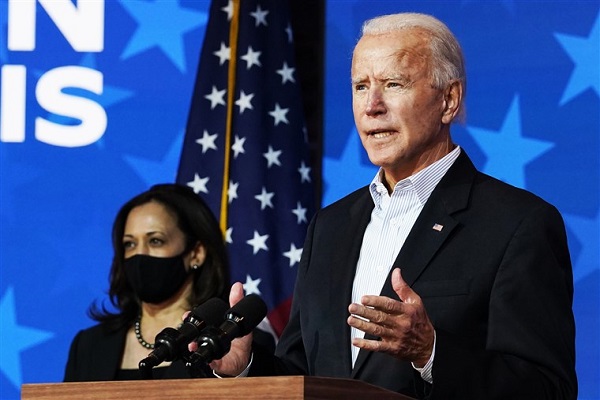This post has already been read 1349 times!
US President Joe Biden will sign three more executive orders on immigration Tuesday as part of a drive to erase the hardline legacy of Donald Trump, including an effort to reunite children separated from their parents at the US border with Mexico.
They are a follow-up to executive orders that Biden signed on his first day in office as he reforms the US immigration system after what was widely criticized as abusive anti-foreigner policy under Trump.
The latest measures do not address the status of some 11 million undocumented immigrants living in legal limbo, which hinges on whether Biden can persuade enough congressional Republicans to back a bill offering them a path to citizenship.
The new action by the Democratic president is aimed at streamlining the legal US immigration process, officials said, with Biden to order a review of all legal obstacles to immigration and integration put in place under Trump.
“The review will likely lead to dramatic changes in policies,” according to a senior government official, saying the goal is “to restore faith in our legal immigration system, and promote integration of Americans.”
“President Trump was so focused on the (Mexico border) wall that he did nothing to address the root cause of why people are coming to our southern border,” the official said.
“It was a limited, wasteful and naive strategy, and it failed.”
In line with campaign promises, one of the orders will put in place a working group tasked with reuniting migrant families separated by Trump’s “zero tolerance” policy put in place in 2018.
That policy allowed officials to prosecute and deport adults who had entered the US illegally. Their children were then placed into federal custody.
Faced with international outcry, and even criticism from within his own party, the Trump administration was forced to scale down the policy, but hundreds of migrant children have still not been returned to their parents.
The working group will examine ways to reunite the families, officials said, without specifying whether that could allow parents or children who had been deported to return to US soil.
A second executive order echoes a similar policy under the Barack Obama administration, putting in place legal mechanisms for prospective immigrants in their home countries to apply for residency, allowing them to avoid dangerous smuggling routes.
– End to ‘wealth test’ –
The third decree will promote the integration of some nine million migrants legally settled in the United States and make naturalization “more accessible to the more than nine million immigrants who are currently eligible to apply” for citizenship.
There will be a review of the so-called “public charge rule” introduced in August 2019 that allowed officials to refuse citizenship or green card applications to migrants receiving social assistance, such as subsidized care or housing allowances.
The public charge rule “basically created or established a wealth test for immigrants,” one senior Biden official said.
Most of the reforms will be led by the secretary of Homeland Security.
Biden has nominated Alejandro Mayorkas to the position, and the Senate will vote on his appointment midday Tuesday.
If confirmed, Mayorkas — who arrived in the United States as an infant as the son of Cuban refugees — will be the first Hispanic person to lead the Department of Homeland Security, a sprawling agency that oversees immigration issues, border police and emergency responses.
– Uncertainty for undocumented migrants –
The Biden administration’s efforts to overturn Trump-era immigration policies will likely be welcomed by the left wing of his Democratic Party.
Since coming into office he has canceled two of his predecessor’s landmark measures, suspending construction of the wall along the border with Mexico and lifting a ban on US entry for residents of a number of countries with majority Muslim populations.
On his first day in office, Biden sent a bill to Congress that could offer a path to citizenship for millions of undocumented immigrants — including so-called Dreamers, or people who were brought to the US illegally as children and grew up there.
The legislation’s adoption, however, will require the support of several Republican lawmakers — which is far from assured.



